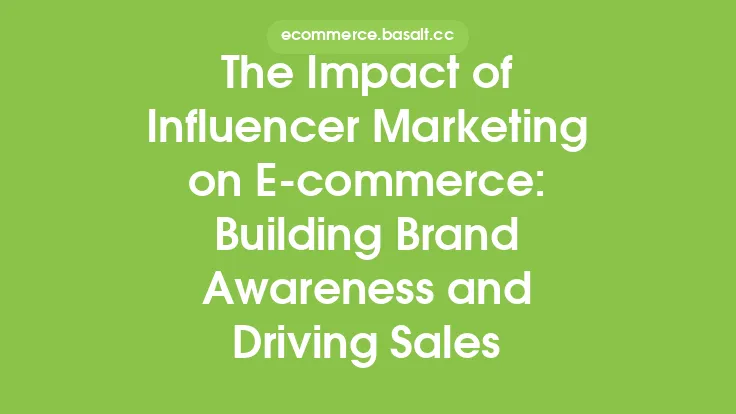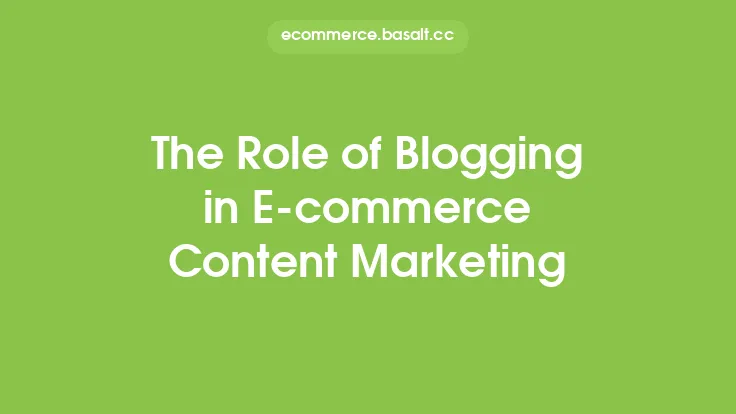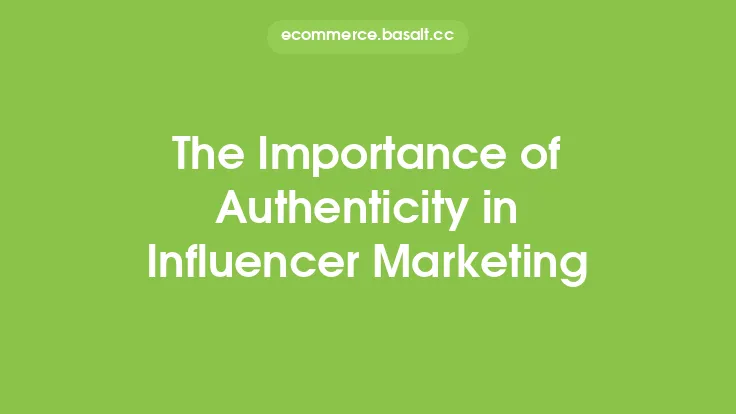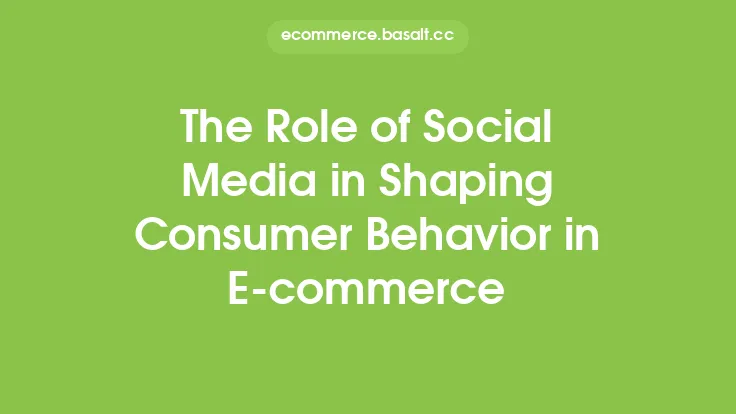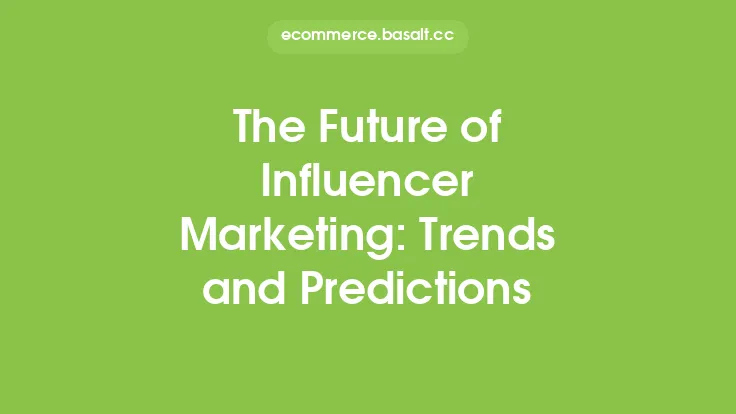In today's digital age, building brand awareness is a crucial aspect of any e-commerce marketing strategy. With the rise of social media, consumers are constantly bombarded with advertisements and marketing messages, making it increasingly difficult for brands to stand out and capture their attention. This is where influencer marketing comes in – a powerful tool that can help brands build awareness, credibility, and trust with their target audience. Influencer marketing involves partnering with individuals who have a significant following on social media or blogs, and who are willing to promote a brand's products or services to their audience.
Understanding the Power of Influencer Marketing
Influencer marketing is effective because it leverages the trust and credibility that influencers have built with their audience. When an influencer promotes a brand, their followers are more likely to take notice and consider the brand's products or services. This is because influencers have a deep understanding of their audience's needs, preferences, and pain points, and are able to communicate with them in a way that resonates. Additionally, influencers often have a high level of engagement with their audience, which means that their followers are more likely to interact with their content, share it with others, and remember the brand being promoted.
The Role of Influencer Marketing in Building Brand Awareness
Influencer marketing plays a significant role in building brand awareness by increasing a brand's visibility, credibility, and reach. When a brand partners with an influencer, it gains access to the influencer's audience, which can be vast and highly targeted. This allows the brand to reach new customers who may not have been aware of the brand otherwise. Furthermore, influencer marketing helps to build credibility and trust with the target audience, as the influencer's endorsement serves as a form of social proof. This can be especially effective for new or emerging brands that are looking to establish themselves in a crowded market.
Types of Influencer Marketing
There are several types of influencer marketing that brands can use to build brand awareness. These include sponsored posts, product reviews, giveaways, and takeovers. Sponsored posts involve the influencer creating content that promotes the brand's products or services, while product reviews involve the influencer reviewing and providing feedback on the brand's products. Giveaways involve the influencer giving away the brand's products or services to their audience, while takeovers involve the influencer taking control of the brand's social media accounts for a day. Each type of influencer marketing has its own unique benefits and can be used to achieve specific marketing goals.
The Importance of Choosing the Right Influencer
Choosing the right influencer is crucial to the success of an influencer marketing campaign. The influencer should have a genuine interest in the brand's products or services, and should have an audience that aligns with the brand's target market. Additionally, the influencer should have a high level of engagement with their audience, and should be able to create high-quality content that resonates with their followers. Brands should also consider the influencer's values and personality, and ensure that they align with the brand's own values and mission.
Measuring the Effectiveness of Influencer Marketing
Measuring the effectiveness of influencer marketing is critical to understanding its impact on brand awareness. Brands can use metrics such as reach, engagement, and conversions to measure the success of their influencer marketing campaigns. Reach refers to the number of people who viewed the influencer's content, while engagement refers to the number of likes, comments, and shares. Conversions refer to the number of sales or leads generated as a result of the influencer marketing campaign. Brands can also use tracking links and promo codes to measure the effectiveness of their influencer marketing campaigns.
Best Practices for Influencer Marketing
There are several best practices that brands should follow when it comes to influencer marketing. These include clearly defining the marketing goals and objectives, choosing the right influencer, and creating high-quality content that resonates with the target audience. Brands should also ensure that they are complying with the Federal Trade Commission (FTC) guidelines on sponsored content, and should disclose any sponsored content to their audience. Additionally, brands should be respectful of the influencer's audience and should not try to manipulate or deceive them.
The Future of Influencer Marketing
The future of influencer marketing looks bright, with the industry expected to continue growing in the coming years. As social media continues to evolve, influencer marketing will become even more sophisticated, with brands using data and analytics to measure the effectiveness of their campaigns. Additionally, influencer marketing will become more specialized, with brands partnering with influencers who have a specific niche or expertise. As the industry continues to grow, it's likely that we'll see new and innovative forms of influencer marketing emerge, such as virtual reality and augmented reality experiences.
Conclusion
Influencer marketing is a powerful tool that can help brands build awareness, credibility, and trust with their target audience. By partnering with influencers who have a genuine interest in the brand's products or services, brands can increase their visibility, reach, and engagement. When done correctly, influencer marketing can be a highly effective way to build brand awareness and drive sales. As the industry continues to evolve, it's likely that we'll see new and innovative forms of influencer marketing emerge, and brands will need to stay ahead of the curve to remain competitive. By following best practices and measuring the effectiveness of their campaigns, brands can harness the power of influencer marketing to achieve their marketing goals and build a strong online presence.
